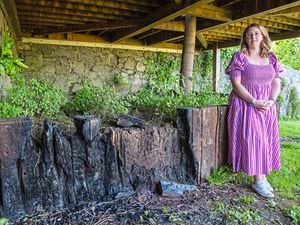‘Wonder drug’ firm’s former finance head is banned by court
FORMER Immuno Biotech financial controller Peter Dawson-Ball has been banned from playing any significant role in local companies for 12 years.

The ruling was handed down by Deputy Bailiff Jessica Roland after an application was made by the Guernsey Financial Services Commission under The Companies Law.
Immuno Biotech was the company through which disgraced David Noakes sold ‘wonder drug’ GcMaf.
In February 2019, Mr Dawson-Ball was found guilty, following a trial, of two counts of acquiring or using proceeds of crime and one count of money laundering during his time at the company.
For each of the first two offences he was sentenced to 15 months in prison, concurrent, suspended for two years, and he was given 180 hours’ community service for money laundering.
Following the application to the Royal Court by the GFSC, the Deputy Bailiff handed down her judgment which disqualified Mr Dawson-Ball from: being a director, secretary or other officer of any company; being a shadow director of any company; participating in, or being in any way concerned in, directly or indirectly, the management, formation, or promotion of any company; participating in, or being in any way concerned in, directly or indirectly, the management, formation or promotion of any overseas company; being an administrator of any company; being a receiver of a cell of any protected cell companies; and being a liquidator of any company.
The ban will run until 15 December, 2032.
It was also noted that at the time the offences were committed, Mr Dawson-Ball was subject to a prohibition order made under the Regulation of Fiduciaries, Administration Business and Company Directors law as a result of his involvement with a business known as Claridges Trustees Ltd and this was considered an aggravating factor in considering the length of the ban.
In its statement about the ruling, the GFSC said that in making the disqualification order, the Royal Court was mindful of several factors, including the need to protect the Bailiwick’s reputation and the need to protect people not only locally but also any overseas companies.
It was also noted that Mr Dawson-Ball had not admitted his role in the offences and failed to consider the consequences of his conduct, ‘and that of those he associated with on people, often in very difficult circumstances, who were taken-in and exploited’.
‘The commission welcomes the decision, which will assist in further protecting the public and the reputation of the Bailiwick as an international finance centre,’ said the GFSC.





